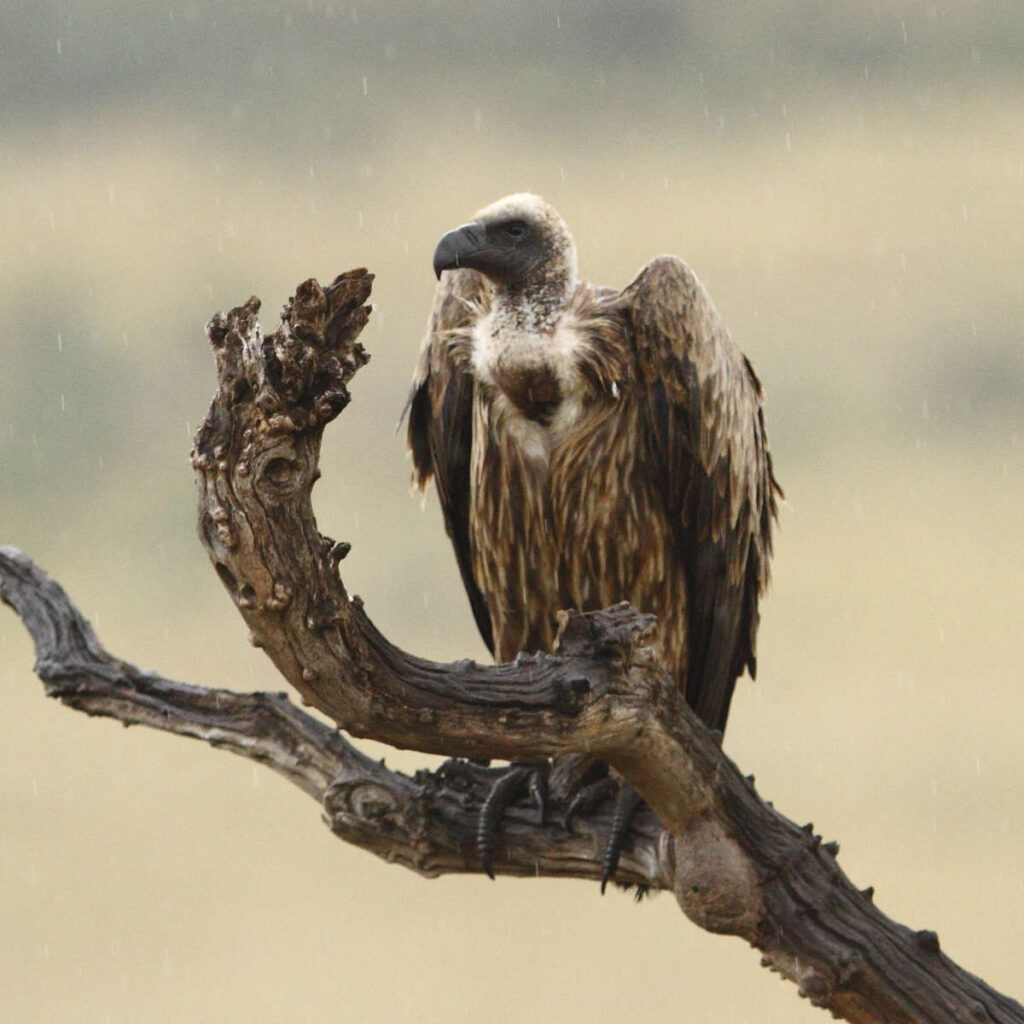Last Reviewed and Updated on July 21, 2022
Vultures are typically large birds of prey with a keen sense of smell. They can often be found circling in the sky looking for food or carrion to eat, which is one of their more distinctive features. But there are quite a few more! Explore these fun facts about vultures, from the quirky way they cool themselves to their puking habits.

1. Vultures are scavenging birds of prey
Birds of prey are predatory birds that pursue other animals for food. Vultures don’t usually hunt for live prey, they usually feed on dead animal carcasses, but some can hunt live animals too.
Black vultures, for example, mainly eat carrion but can also tackle live prey. In groups, they even prey on larger animals such as newborn cattle or lambs.
2. There are 23 species of vultures
There are two groups of vultures, the New World Vultures and the Old World Vultures, and there are 23 species between them.
The Old World Vultures are found in Europe, Asia, and Africa, and the New World Vultures in the Americas.
3. New World Vultures pee on their legs to cool themselves
Yup, they urinate on themselves as a means of cooling down their bodies. Well, it’s not technically pee as vultures, like most birds, don’t have a urethra. Their droppings consist of urine and feces combined and are excreted together through the cloaca (the only opening for all droppings). Vultures defecate on their legs, and the evaporating of the fluids cools their legs (like sweat in humans). One of the weirdest facts about vultures for sure!
4. A group of vultures in flight is a kettle, a group of vultures resting is a committee
Not many birds can pride themselves on having different names for when they are on the ground or when they are in flight.
5. They have a very corrosive stomach acid
What has to be one of the coolest facts about vultures is their impressive stomach acid. The pH of their stomach acid is between 0 and 1. In comparison, a human has a pH between 1.5 and 3.5. Vultures may very well be animals with the lowest pH in the animal kingdom.
This allows them to safely digest bones and bacteria that would kill most other animals.
6. New World vultures often vomit when threatened
Considering their strong stomach acids, this was once believed to be an offensive or defensive mechanism, and a myth of vultures projecting vomit was born. But that is not exactly the case. New world vultures may vomit when threatened so that they lighten up their load (they throw out the semi-digested carrion), both distracting their potential predators and making their escape easier on an empty stomach.
7. New World vultures are pretty much silent
New World vultures don’t have a voice box. They can grunt and hiss, but these are pretty much all of the noises they can make.
8. They don’t circle dying animals
Vultures circling dying animals is a very common myth. They don’t sense when an animal is dying. Vultures have an extraordinary sense of smell; it is the smell of carrion that brings them to their food.
9. New World Vultures don’t build nests
They don’t build nests. They can lay their eggs on the bare ground but will search for suitable spaces to lay their eggs. Natural cavities in cliffs, ledges, burrows of other animals, or abandoned nests from other birds will do.
10. They play a crucial role in the ecosystem
Decaying meat can become hotspots for all kinds of diseases, and this can lead to disease outbreaks. Vultures play an essential role in removing carcasses across vast areas of land,
